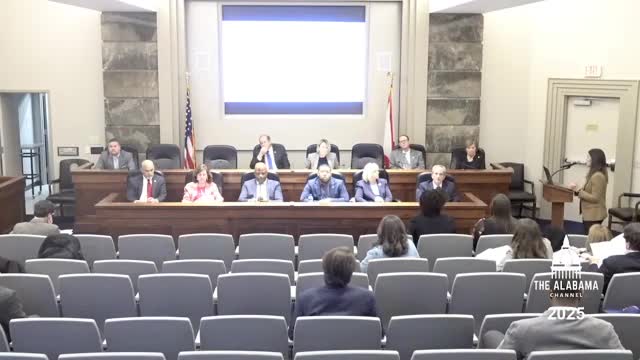Commission hears shortfalls in behavioral-health capacity; crisis centers and medication access noted
Get AI-powered insights, summaries, and transcripts
Subscribe
Summary
Department of Mental Health and commissioners described limited inpatient capacity, a shortfall in civil commitment beds, the expansion of crisis centers and the recent addition of medication assisted treatment in the Department of Corrections.
Commission members and Department of Mental Health representatives described gaps in behavioral-health infrastructure that affect reentry outcomes and community safety.
Speakers said Alabama has limited long-term inpatient treatment and insufficient civil commitment beds. A Department of Mental Health participant reported a commonly cited benchmark that states should have about 30 civil-commitment beds per 100,000 population; Alabama’s current figure was described as approximately 14 beds per 100,000. The shortfall, participants said, reduces options for treatment and sometimes results in people remaining in jail or receiving care in inappropriate settings.
Several speakers described the state’s crisis-center initiative and its intent: crisis centers do not use a catchment area and are open to callers statewide. Presenters and commissioners listed operational centers in Mobile, Montgomery, Birmingham, Huntsville and Tuscaloosa; they also reported that a Dothan center would open in mid-February (speaker referenced a Feb. 10 ribbon cutting). Crisis centers were described as providing mobile crisis response and 24/7 access, and the functional definition of crisis stabilization was given as five to seven days.
Commissioner Boswell noted that medication assisted treatment (MAT) is now provided in the Department of Corrections and described that change as an important step to reduce overdose risk and improve continuity of care. Commissioners also discussed practical barriers after release, including examples of people returning home without access to medication late at night; crisis centers were presented as one pathway to immediate medical access but not a comprehensive solution for every gap.
Speakers emphasized rebuilding community capacity after historical reductions in institutional beds and the need to coordinate courts, community providers and jails to reduce inappropriate long-term commitments that arise when treatment options are unavailable. The commission flagged these topics for the behavioral-health working group and interagency discussion with courts and corrections.
